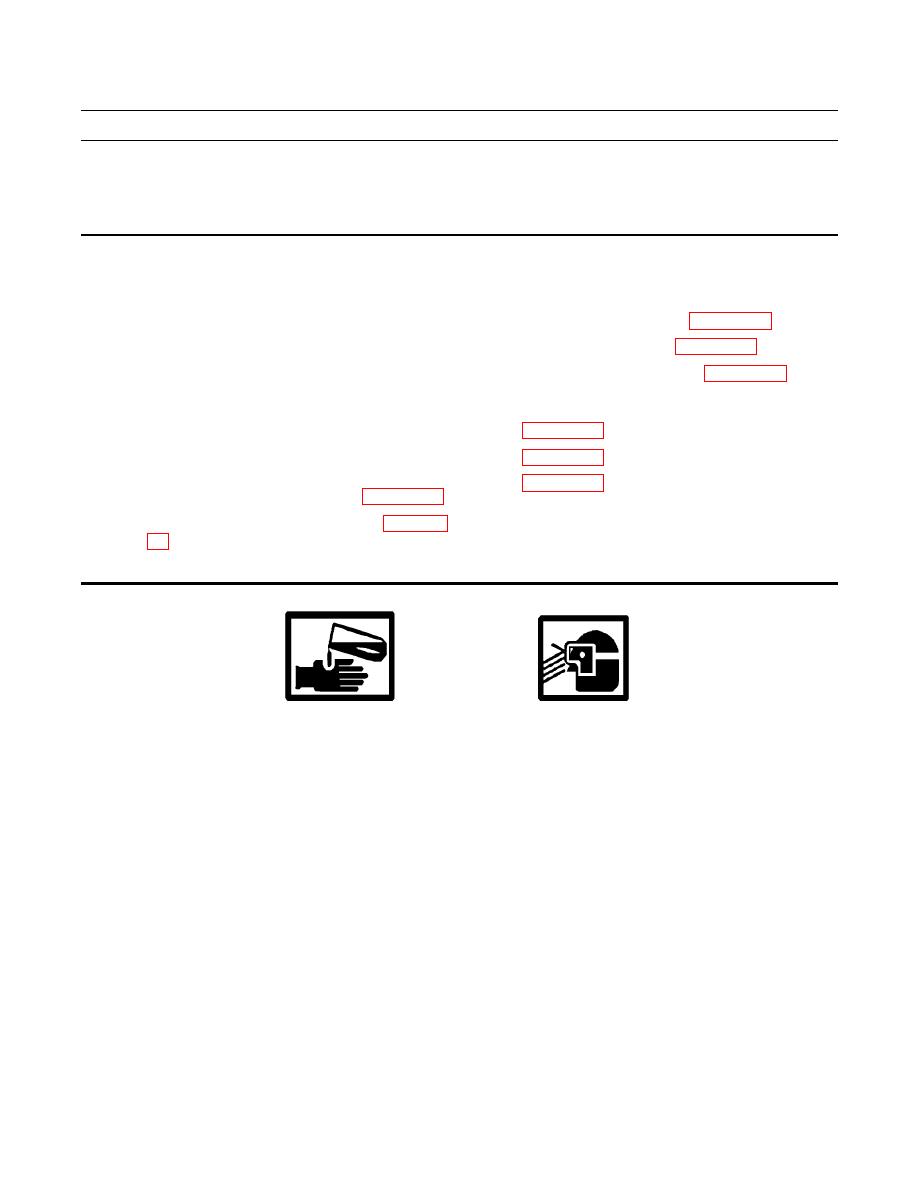 |
|||
|
|
|||
|
Page Title:
AIR CONDITIONING SYSTEM MAINTENANCE |
|
||
| ||||||||||
|
|
 TM 9-2320-312-24-1
AIR CONDITIONING SYSTEM MAINTENANCE
THIS WORK PACKAGE COVERS
Recovery, Evacuating/Recycling, Purging, Flushing, Charging
INITIAL SETUP
Materials/Parts
Maintenance Level
Cap set, protective (Item 6, WP 0165 00)
Direct Support
Oil, refrigerant (Item 45, WP 0165 00)
MAC Reference
Refrigerant, R-134a (Item 63, WP 0165 00)
Group 140
References
RPSTL Reference
Group 140, Figure 13
Tools and Special Tools
Tool kit, general mechanic's (Item 35, WP 0166 00)
Equipment Condition
Reclaimer, refrigerant, R134a (Item 25, WP 0166
Cab tilted (TM 9-2320-312-10)
WARNING
Use care to prevent refrigerant from touching your skin or eyes. Liquid refrigerant, when exposed to air,
quickly evaporates and will freeze skin or eye tissue. Serious injury or blindness may result if you come
in contact with liquid refrigerant.
When servicing this vehicle, performing maintenance, or disposing of materials such as engine coolant,
transmission fluid, lubricants, battery acids or batteries, consult your unit/local hazardous waste dis-
posal center or safety office for local regulatory guidance. If further information is needed, please con-
tact The Army Environmental Hotline at 1-800-872-3845.
Handle cylinders that contain gas under high pressure as high-energy sources and therefore as potential
explosives. Follow these safety rules to avoid serious injury or death to personnel:
(a) Wear eye protection and gloves when handling cylinders.
(b) Prior to use, inspect cylinders for damage or evidence of leaks.
(c) Keep cylinders capped when not in use.
(d) Secure cylinders when handling or moving them to ensure they do not fall. Do not drop, drag
or roll cylinders.
(e) Do not expose cylinders to temperatures higher than 125F (52C). Keep in well-ventilated
areas away from heat sources, combustible gases or highly combustible materials, and contact
with electrical circuits.
(f) Never use a cylinder that you cannot positively identify its contents.
|
|
Privacy Statement - Press Release - Copyright Information. - Contact Us |